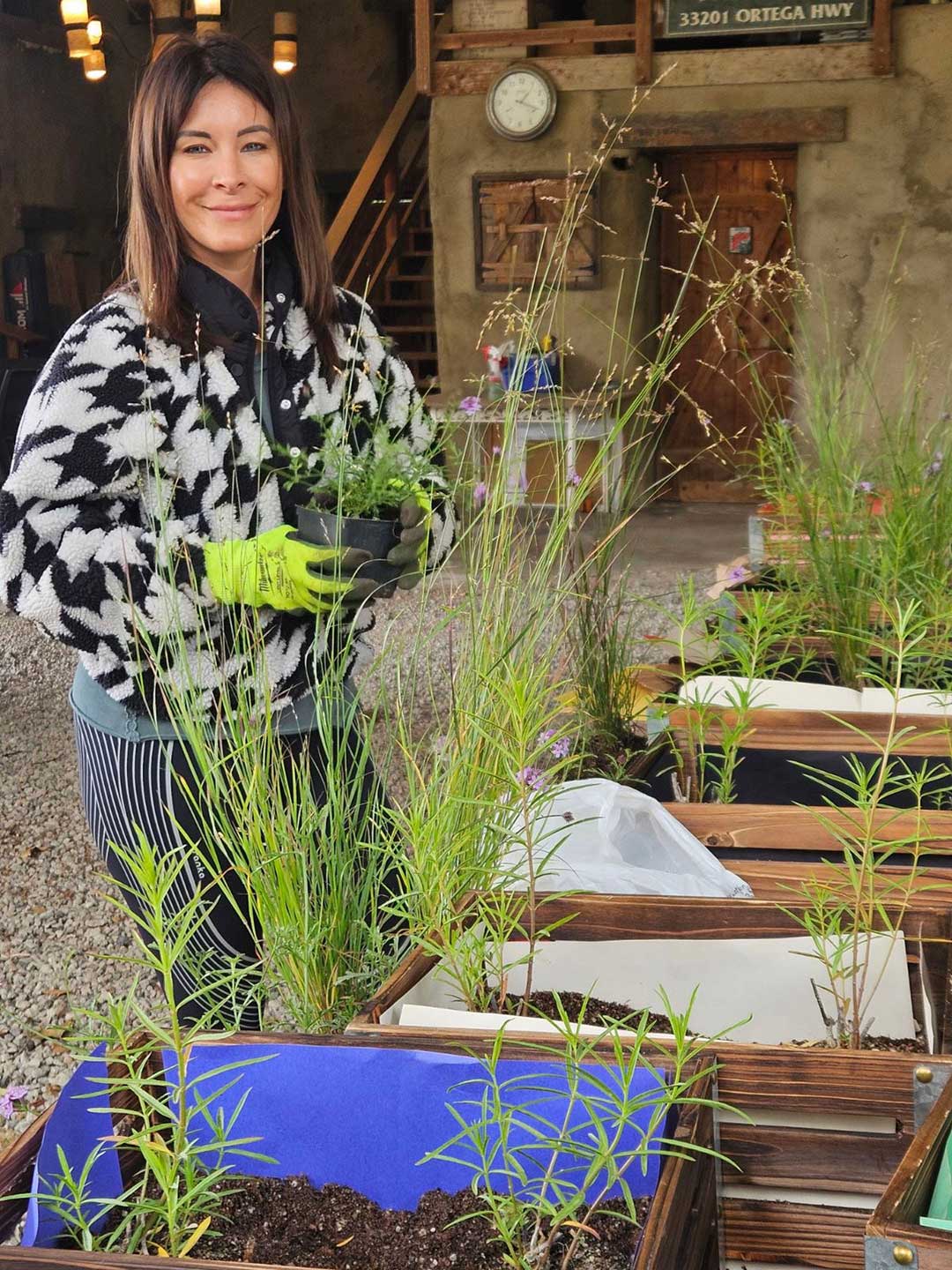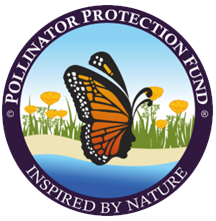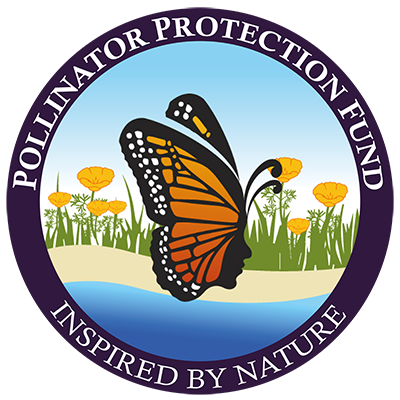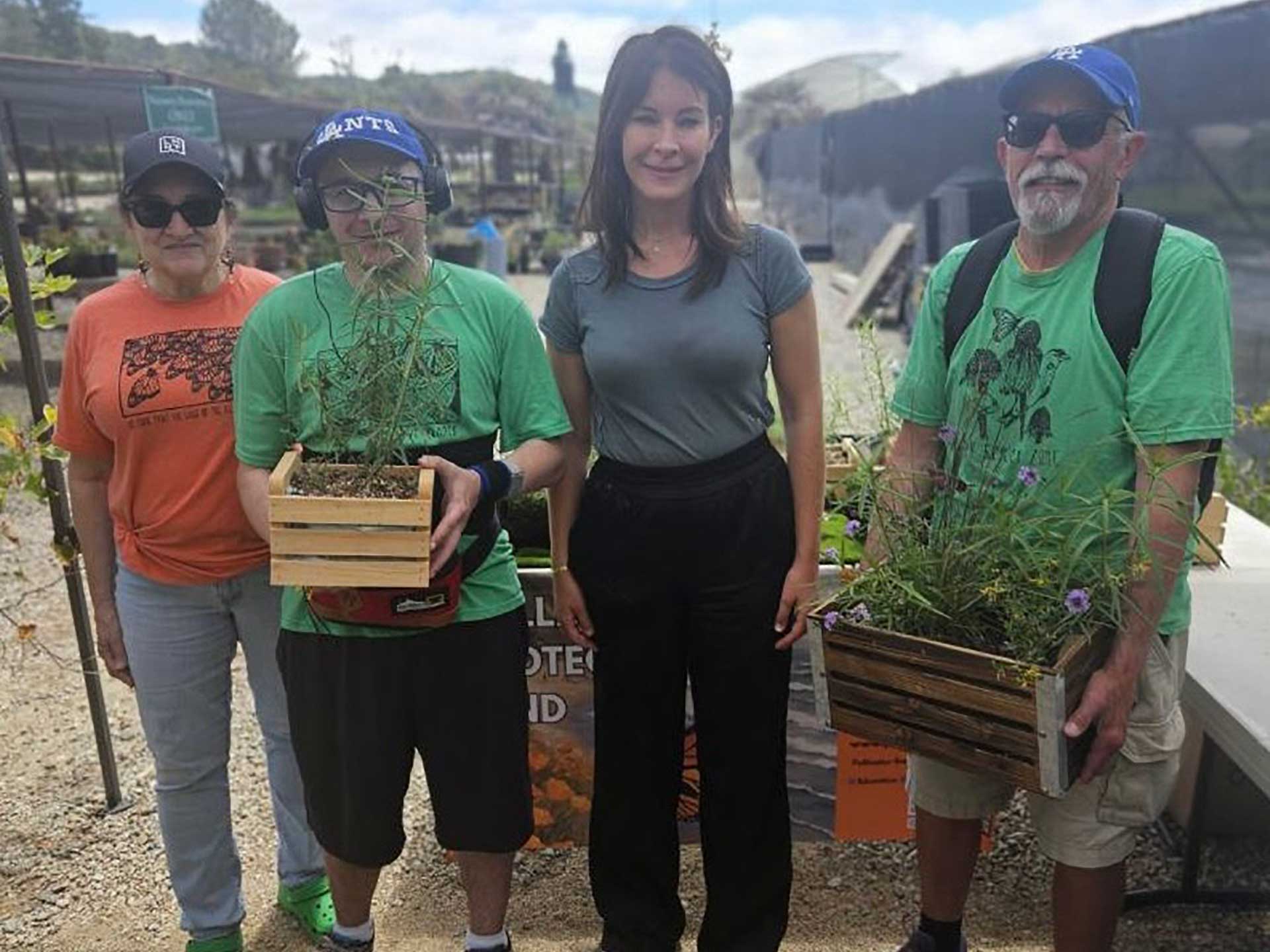Local nonprofit plans giveaway of “habitat hotels” for monarch butterflies, other pollinators
A local organization is planning a giveaway next weekend with the aim to help the iconic, but imperiled monarch butterfly – and other important pollinators – thrive in the region.
Laguna Beach-based Pollinator Protection Fund will be handing out pollinator “habitat hotels” on June 8 from 9 a.m.-3 p.m. at the Tree of Life Native Nursery in San Juan Capistrano. They’re hoping to do a giveaway event at a Laguna location in the near future, noted PPF Managing Director Laura Ford in an email to Stu News Laguna.
The group will have a stall at the nursery and will be handing out boxes to schools, teachers, community organizations, and nature and environmental clubs. The containers will be filled with native plants to attract and feed butterflies and bees. The plants are all native, pesticide free and organically grown, Ford explained, and will include rich, healthy, organic soil. They will also have care sheets for the boxes, educational materials, and coloring sheets and stickers for kids.
“The Pollinator Habitat boxes are a great way to introduce vital habitat for pollinators into people’s homes and into schools to inspire the next generation,” Ford said. “The habitat boxes are easy to care for and make it easier to learn how to create native pollinator habitat.”
In each box, PPF will include: Narrowleaf milkweed, the host plant for monarch butterflies; small flowered melica grass, a native grass which can be used by monarch caterpillars to shelter in; lilac verbena, which produces purple blooms full of nectar for butterflies and bees and deerweed, a native plant with yellow blooms which turn red once they have been pollinated. Deerweed is also a host plant for numerous other butterfly species, Ford added.
“To create vital habitat, you don’t need to have a big yard or lots of space – one planter in a sunny position can make a big difference to pollinators seeking food and shelter,” she said.

Pollinator Protection Fund Managing Director Laura Ford with some of the habitat boxes the organization will be giving away next weekend
PPF has worked to plant butterfly habitats in Laguna Beach parks over the last few years to support the threatened monarch, arguably North America’s most beloved butterfly.
A habitat in Heisler Park was installed in 2021 and the butterfly garden in Bluebird Park (planted in two sections, one by Cress Street and a second area at the back of the park) was planted in 2022.
And the monarchs need a lot of help.
Each fall, monarchs migrate to central Mexico and some parts of the Southern California coast, including Laguna Beach, where they overwinter in large clusters on trees. In spring, they return north and the females lay eggs on milkweeds, the only plant on which monarch larvae will feed.
The U.S. Fish and Wildlife Service announced in December 2020 that monarch butterflies’ status warranted being listed as “endangered,” but was precluded by work on higher-priority listing actions. With this decision, the monarch becomes a candidate for listing under the Endangered Species Act, and its status will be reviewed each year until it is no longer a candidate. The monarch is currently slated to be listed in 2024.
Populations have dramatically declined since the 1980s, and only recently have their numbers along the California coast started to signal a possible rebound, although official counts are still low and they remain in serious danger.
The primary drivers of decline are loss of overwintering, breeding and migratory habitat in California and pesticide use, according to Xerces Society, a non-profit environmental organization that focuses on the conservation of invertebrates.
A pollinator garden with native plants creates healthier soil and encourages different species to bloom, creating a biodiverse environment.
Locally, Ford previously told Stu News Laguna that they counted more than 80 monarch caterpillars at the garden in Bluebird Park in spring 2023, and saw about half of them turn into butterflies. They also saw an influx of monarchs and chrysalises hidden within the bushes in the garden at Heisler Park last summer.


